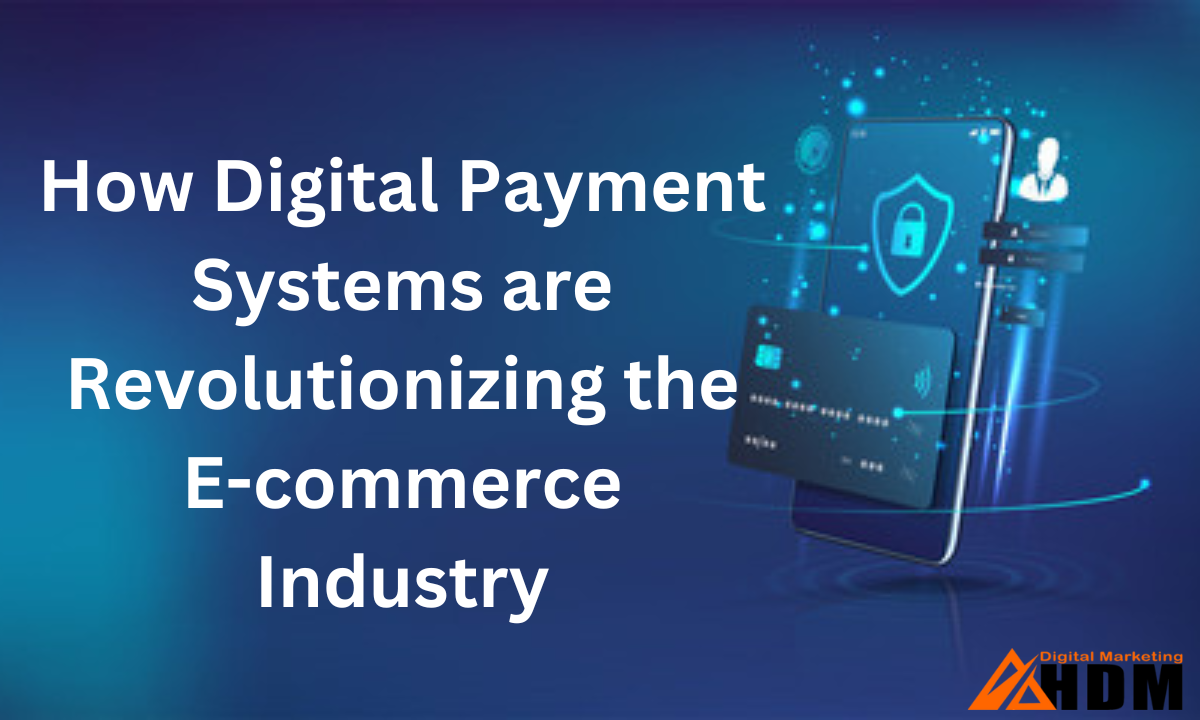Table of Contents
Picture this: you’re lounging on your couch, scrolling through your favourite online store, and you spot the perfect item. You click “Add to Cart” but realize you don’t have your wallet. No problem! With only a few taps on your phone, you can complete the purchase using a digital payment system!
This convenience is just one of the many ways digital payment systems are transforming the e-commerce industry. From mobile wallets to cryptocurrencies, they’re revolutionizing how we shop online. In this article, we’ll explore how these mobile payment apps are reshaping the digital marketplace. So, read on and get ready to discover the future of online shopping!
Transforming e-commerce with digital payments
The impact of digital payment systems on e-commerce has been especially evident over the past few years. From increased convenience to greater security, they have boosted the competitiveness of merchants. At the same time, these advancements have also given customers more control over their purchases. Let’s take a closer look at just how digital payment systems are currently revolutionizing the e-commerce industry.
1. Faster transactions
In the past, purchasing items online would take days or even weeks with traditional payment methods. But today, digital payment systems enable transactions to be processed in seconds or minutes. This makes it easier for customers to procure goods and services online without waiting forever for their transactions to be approved or cleared.
2. Increased security
As consumers have become increasingly aware of security risks associated with e-commerce activities, the best and the brightest from the tech and business worlds have come up with a great solution. We’re talking about digital payment systems that provide an added layer of protection through advanced encryption technologies. Examples of these are SSL (Secure Sockets Layer) and TLS (Transport Layer Security) protocols. Implementing these security measures ensures customer data is safe from unauthorized access and theft.
3. Reduced fraud risk
Fraudulent activities can occur when hackers use stolen credit card information for online purchases. With digital payment systems, however, merchants can validate the accuracy of each transaction with identity verification processes like biometric authentication and two-factor authentication (2FA). This reduces the risk of fraudulent activities occurring on their website or app. Thus, consumers are able to avoid scammers and protect themselves from other malicious actors.
4. Global reach
Cross-border transactions are typically difficult to process due to high transaction fees from exchange rate fluctuations. But through digital payments, merchants can now make commercial deals and easily accept payments from customers worldwide without worrying about losing money from the volatility of forex rates.
5. Increased efficiency
Physical payments involve manual data entry, which is time-consuming. It’s also prone to errors, which can be costly for either the merchant or the customer. With digital payments, automated data inputting is possible, eliminating the usual human errors that often plague paper-based transactions. As a result, you get faster processing times, fewer delays, and improved efficiency throughout the entire business process.
6. Better customer service
Digital payment systems allow merchants to provide better customer service with multiple options, such as debit cards, credit cards, and mobile wallets like Apple Pay or Google Pay. Customers can choose whatever method they prefer, making it easier for them to pay quickly during checkout. This leads to a better shopping experience overall.
7. Data analysis
One key benefit of digital payments is that they empower merchants to capture real-time data about their customers’ purchasing habits. This helps them gain valuable insights into their consumers’ preferences. They can then use this information to tailor their marketing messages accordingly. Thus, merchants who leverage data analytics from digital payment tools have the upper hand over their competitors.
8. Improved cash flow management
Small business owners who use digital payment systems may also benefit from faster cash flow management. Most platforms offer immediate tracking capabilities, allowing businesses to review how much money is coming in at any given moment. This increases transparency surrounding financials, giving owners a better grasp of how liquid their situation is.
9. Mobile-friendly shopping
With more people accessing websites via mobile devices, sites must be optimized for smaller screens. This way, customers can complete purchases through smartphones, tablets, and other portable gadgets. Online retailers can now do this with digital payment platforms that support various web browsers. Thus, customers can shop securely regardless of their electronic device of choice.
10. Cost savings
Manual processes typically involve hiring personnel to take care of repetitive tasks. This can significantly add up to a hefty sum and increase overhead expenses. But by using digital payment systems, business owners can automate tedious to-dos, reducing the required staffing. This can result in significant savings from operational costs over time.
The takeaway
All these advantages make it clear why many enterprises are turning toward digital payment systems. By leveraging the benefits of these innovations, companies save precious money and time while providing superior customer shopping experiences. Indeed, there’s no way to go but up for businesses that have integrated these technological innovations into their e-commerce operations. Thinking of joining the fray? Before you do, you may want to visit the blog of Host Digital Marketing for more ways to conquer the digital marketplace!




